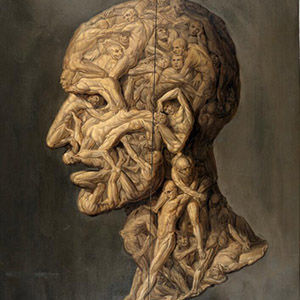Writing Body and Mind
- Dates
- Thursday 9 December 2021 (17:00-18:00)

The Salon – a new virtual discussion rooted in Mental Health Humanities
This new monthly virtual discussion is part of the Mental Health and Medical Humanities Initiative, instigated by the Institute for Mental Health, but owned by scholars across campus at the University of Birmingham. Online each month, an internal and external speaker act as ‘provocateurs’, offering brief 5-minute presentations that might be rooted in a reading, a piece of art, or a key theme from their research. The Salon aims to recreate stimulating, interdisciplinary discussions, which maximise ideas and collaborations and slot discretely into busy schedules.
Writing body and mind
An online interactive Mental Health Humanities discussion, featuring guest speakers:
- Alanna Skuse is a Wellcome Trust university award lecturer in the English literature department at the University of Reading, with research interests in embodiment, mental health, medical writing, and early seventeenth century drama and poetry. Dr Skuse’s first book, Constructions of Cancer in Early Modern England, was published in 2016, and the second, Surgery and Selfhood in Early Modern England, was published in 2021. Alanna’s current project, ‘Self-wounding in early modern England’, investigates representations of self-injury from the 1580s to the 1720s.
- David James is Professor in the Department of English Literature and Chair in Modern and Contemporary Literature at the University of Birmingham. Professor James’s research and teaching areas span twentieth- and twenty-first-century writing, with a particular focus on the history and theory of the novel. Most recently, David has been working on the politics and poetics of affect in contemporary fiction and life-writing, combining my interests in the history of emotions, disability studies, and narrative medicine.